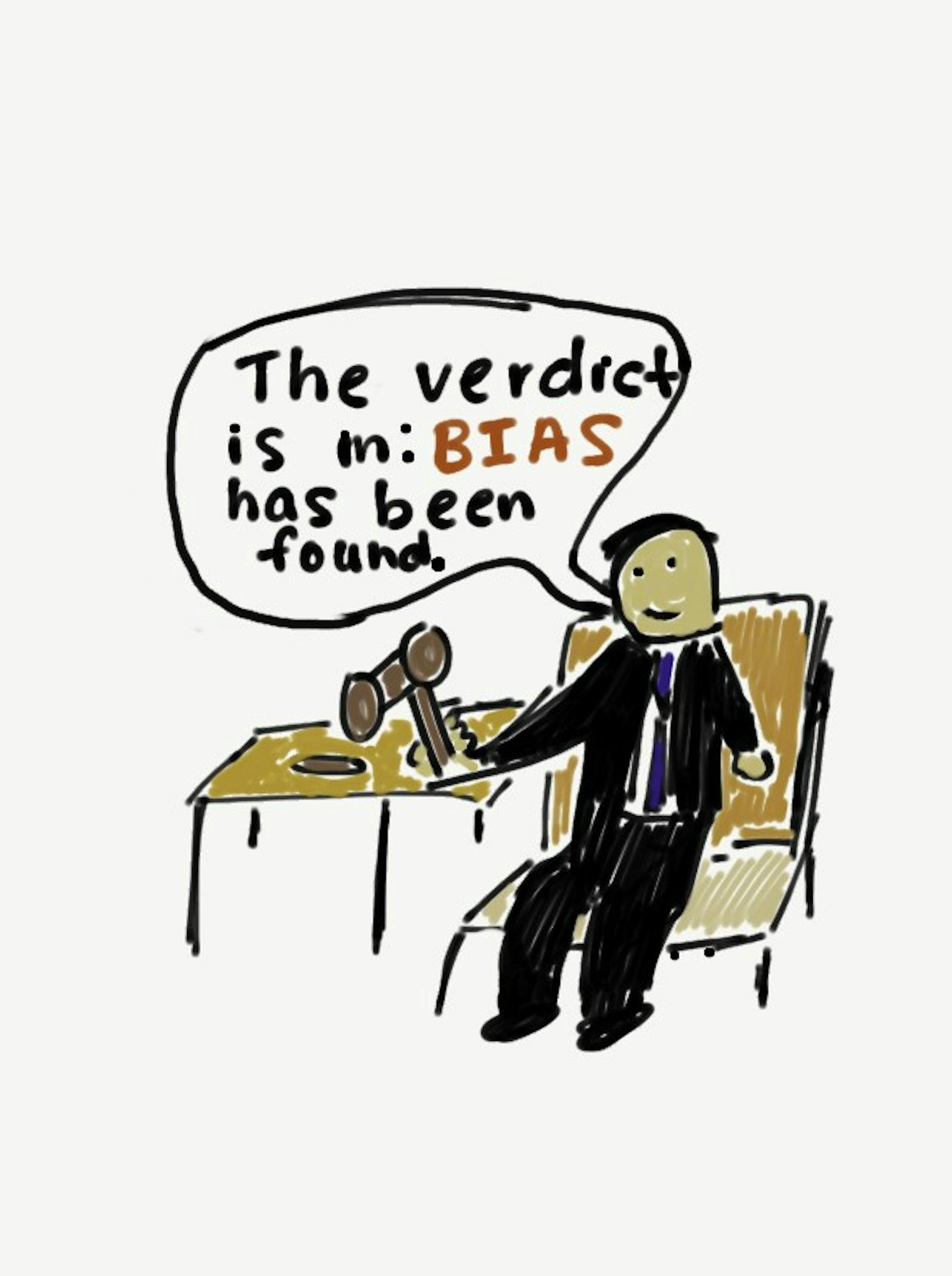Bias, Bye!
Brandeis Mock Trial unveiled a new anti-bias training to combat bias in trial judgements.
“None of us are free from unconscious bias,” Rachel Blau ’20 said. Blau is the former tournament director for the Brandeis Mock Trial team, and one of the brains behind the new anti-bias training that the team developed for their tournament judges and for judges around the country. Every year for the past 14 years, Brandeis has hosted a two-day, four-round Mock Trial tournament, planned and run entirely by students. Last year, when Blau and her co-director, Mayan Kleiman ’20, began planning the tournament, they realized they had the power to address this pervasive issue facing mock trial participants.
“Historically in Mock Trial, it’s been a really big problem that judges will score in accordance with their own biases,” Blau explained. “Mock trial provides a perfect forum for unconscious biases to emerge, because basically you’re being asked to score every competitor every time they speak, and you’re not really held accountable for why you gave certain scores to certain people, so people are given leeway to score in accordance with what they believe is most appropriate.”
The pair was initially inspired to address unconscious biases by an incident that impacted their team directly. When they received their scoring from a particular judge, the group noticed that a senior female competitor, who also happened to be the captain at the time, had been marked significantly lower than that of one of her teammates, a male first-year. “The comments and scoring that this white male student got were so much higher than this senior female who actually knew what she was doing. … It was the first time that those biases were reflected so poignantly, because it was so obvious to everyone on our team that she knew what she was doing and he didn’t, but in the eyes of the judges it didn’t matter,” said Blau.
The issue seems to be widespread throughout the Mock Trial community. When they began developing their training, Blau and Kleiman posted on a forum page used by about 5,000 Mock Trial participants around the country, asking about peoples’ experiences with judging bias. “We received hundreds of comments, literally hundreds,” explained Blau. The experiences ranged across a variety of identity related issues, the majority having to do with gender, race, accent or attire. The biases were clear in the language that the judges used to score the participants. For example, a male competitor may be called “assertive,” while their female counterparts may be referred to as “aggressive.”
Using the comments that they received on their online posts as evidence, the team worked with the Brandeis Prevention, Advocacy, and Resource Center, as well as attorneys, Brandeis professors and other Mock Trial competitors to develop a series of slides that would be presented to judges prior to their involvement in the tournament. “Getting all of that input, we figured out the best way to address the issue without making judges feel like they have to get defensive. … The judges volunteer their time and we’re really grateful for their support. At the same time, we have to find a sensitive way to tell them that just because [they’re] an attorney doesn’t mean [they’re] free from unconscious bias, and let’s have an honest and open conversation and talk about constructive ways to guard against that rather than make it a defensive environment,” Blau commented.
Since developing the training, Blau and the rest of the team have worked to get their slides seen by other teams around the country. “We emailed the American Mock Trial Association and got in contact with them regarding this and they were pretty open to it. … They’ve adopted one of the slides into their judges’ presentation materials, which is good, but then we also thought that all of the slides should be presented, so we reached out to all of the tournament directors who run the invitational tournaments across the country and we emailed it to them. … We explained why it’s important, and we got a lot of really positive feedback from people saying that would integrate it into their tournament,” Blau said. “Ultimately, I think it’s had a pretty positive effect, not only on our tournament but on tournaments across the country.” In order to determine the impact of their training, the team sent out surveys to their competitors asking for feedback after last year’s tournament. This year, the training will also be given to judges, and Blau hopes that it will overall have a positive impact on this year’s season. “We feel pretty confident that this season of Mock Trial, people are going to have a more heightened awareness of some of these problems,” she said.



Please note All comments are eligible for publication in The Justice.